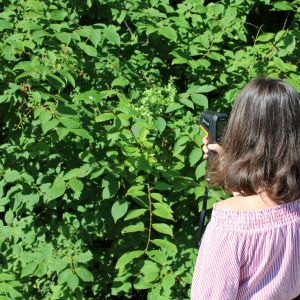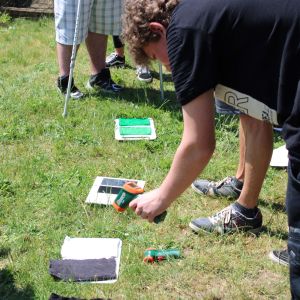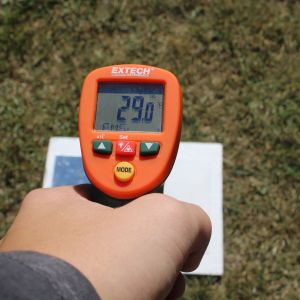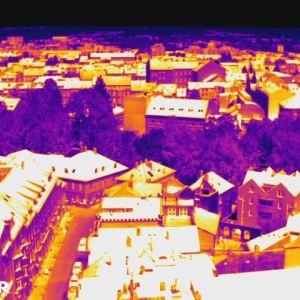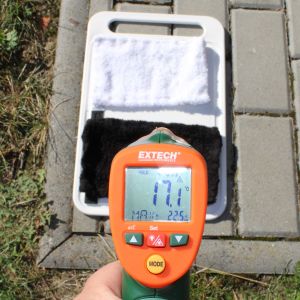New educational methodologies were created at the Faculty of Education of the University of South Bohemia
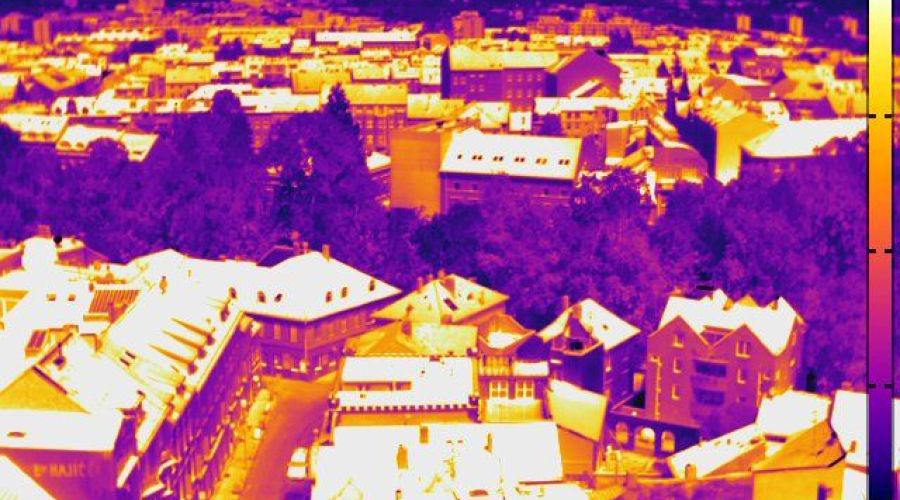
At the Faculty of Education of the University of South Bohemia in České Budějovice, in cooperation with ENKI, o.p.s. Třeboň, new innovative educational methodologies on the role of vegetation in the water cycle and the distribution of solar energy in the landscape have been developed.
Why is the shade of a tree cooler than the shade of a parasol? Why does a mature tree in a city cool better and cheaper than a conventional air conditioner? How can vegetation help retain water in the landscape and prevent further drying up? How to use vegetation to prevent overheating in cities? And how can we teach about all this in an engaging way through attractive teaching approaches using modern measurement technology in student experiments? This is what the research team led by Renata Ryplová, Ph.D. from the Department of Biology of the USB Faculty of Education and doc. RNDr. Jan Pokorný, CSc., from ENKi, o.p.s. Třeboň. Their research resulted in new innovative educational methodologies that focus on the role of vegetation in the water cycle and the distribution of solar energy in the landscape.
Despite the fact that vegetation plays a key role in the human environment in terms of shaping the climate and maintaining water availability in the landscape, the general awareness of this issue is unfortunately quite low. General ignorance of basic plant physiological functions and the related importance of plants in the landscape leads to unconsidered interventions in the vegetation cover, which have a significant impact on the human environment. One of these impacts, which has recently become very negative and is of fundamental importance to human existence, is the increasing drought.
School education is the basis for informing future generations and the general public. However, the role of vegetation in the distribution of solar energy and the water cycle in the landscape has so far been neglected. The teaching of this topic needs to be strengthened, particularly in the context of innovative science teaching. Therefore, in this project, the teaching staff of the Department of Biology of the USB Faculty of Education and internationally renowned scientists from ENKI, o.p.s. have joined forces and are using their long-standing know-how. Třeboň to jointly develop innovative educational methodologies on this topic.
A total of 4 publications were produced under this project. These were three educational methodologies and a theoretical framework for these methodologies. The educational methodology on the role of vegetation in the distribution of solar energy and the water cycle in the landscape was developed in several versions: for university students of science instruction and for primary schools and multi-year high schools. These publications focus on the specific didactic use of the target topic at the primary school level and contain suggestions for individual teaching activities for school practice, developed using modern didactic methods (research instruction, project instruction, cross-curricular instruction). The aim of the university methodology is to create a so-called techno-didactic knowledge of the content in students of science teacher training.
However, it was not only a methodology for school instruction that was developed but also for municipal staff because public administration and local government staff who make decisions about urban development, green space management and landscaping have so far lacked a clear basis for understanding and arguing about the role and function of green space and different landscape cover in the local climate and the environment in general. Employees of the municipal authorities were directly involved in the development of the educational methodology as application guarantors (City of Dačice and City of Třeboň) and therefore it is so to speak ‘tailored’ to their needs. On the basis of their suggestions and comments, 13 teaching situations describing selected specific field cases were created, together with methods of their evaluation. Some cities are already using the methodology in the development of Adaptation Strategies for climate change adaptation in the Czech Republic.
The trio of publications was complemented by a book providing a theoretical framework for these methodologies, entitled Sun–Water–Plants–Climate: A Primer for Understanding and Teaching, where teachers of all types of schools, municipal staff and the general public can draw more in-depth information on this topic.
The developed educational materials are available to the general public for free download on the project website: https://projekty.pf.jcu.cz/svv.
